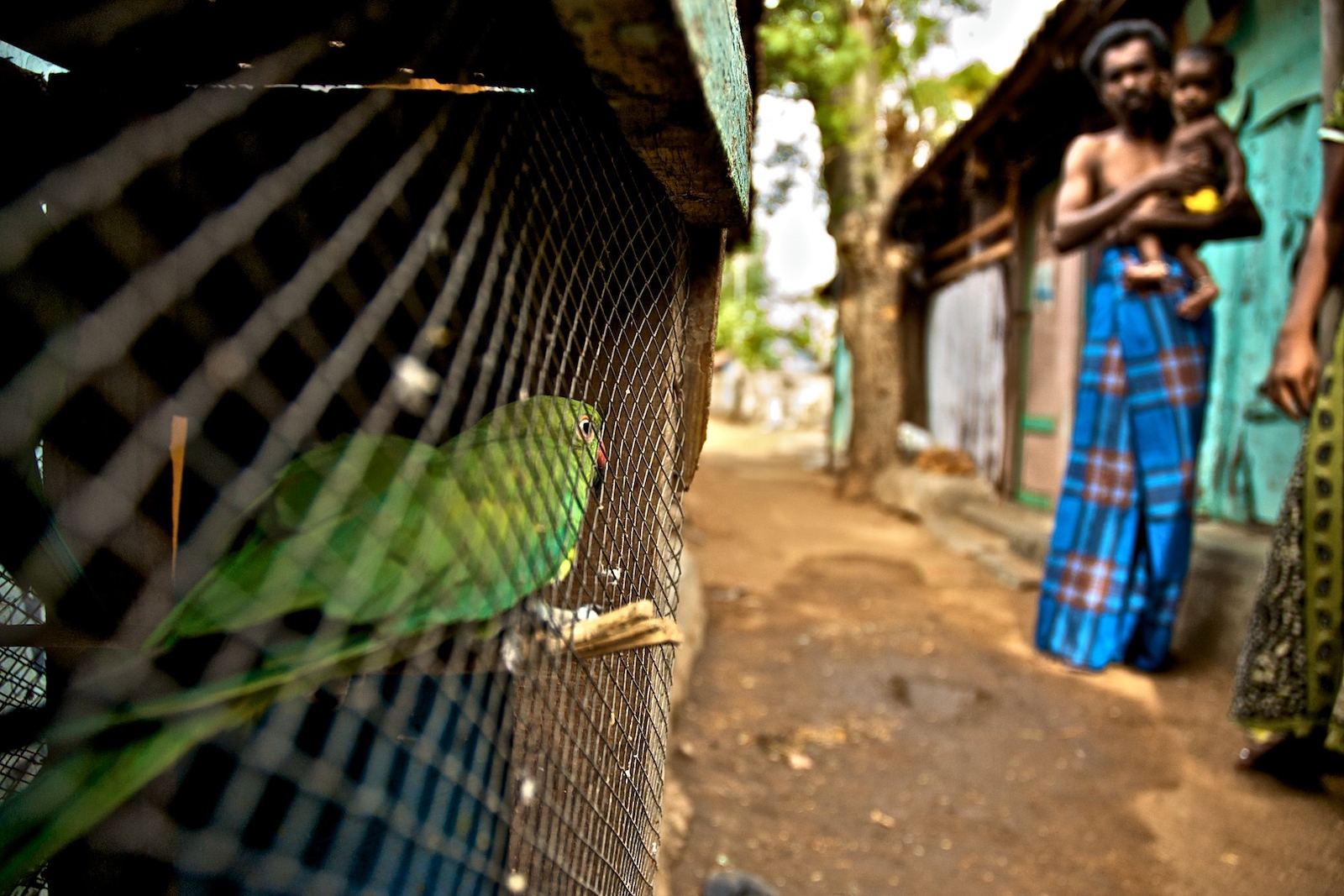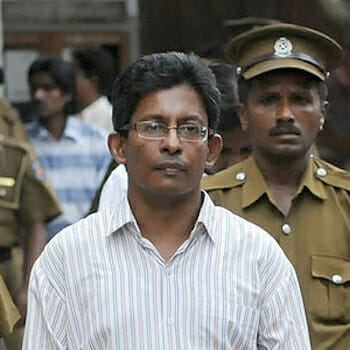
International Community Should Refer Sri Lanka to the ICC
Meeting with UN Secretary-General António Guterres in September, Gotabaya Rajapaksa, Sri Lanka’s president, reiterated issuing death certificates for the disappeared in Sri Lanka. While it is clear that Rajapakse is trying to pervert justice by doing so, what is outrageous is that the United Nations and the international community are willing to look on while this perversion of justice takes place.
“How can Rajapaksa give death certificates to the children who surrendered [to the military]? Does it mean he agrees that he killed the missing children?” asked Yogarasa Kanagaranjini, head of the Association of the Relatives of the Disappeared, whose son disappeared in the conflict.
Tamil families of the disappeared and other survivors of atrocity crimes committed by Sri Lanka’s security forces have been relentless in their search for justice since the civil war began in the 1980s when Tamils demanded secession from the Sinhala Buddhist-controlled Sri Lankan state. When the fighting ended in 2009 with the military defeat of the LTTE, the quest for justice redoubled.
Between the end of the civil war and January 2015, President Mahinda Rajapaksa (brother of Gotabaya Rajapaksa) stonewalled setting up a domestic court system to bring to justice political and military leaders accused of committing crimes, including disappearances. Hence the international community stepped in.
In September 2015, the UN Human Rights Council in Resolution 30/1 established a set of transitional justice mechanisms, including an office of missing persons (OMP), an office for reparations (OFR), and a judicial mechanism consisting of a hybrid court. Resolution 30/1 was co-sponsored by the Sri Lanka government led by Maithripala Sirisena – who succeeded Mahinda Rajapaksa as president in January 2015.
The international community agreed to fund much of the transitional justice effort. In 2015, the UN peacebuilding fund was set up to fund the joint UN-Sri Lanka peacebuilding priority plan. The peacebuilding priority plan was based on four pillars, of which transitional justice was one. The UN and Western donors such as the United Kingdom and the United States, continue to fund parts of transitional justice including the OMP and the OFR.
When the OMP was established in 2016 most Tamil families of the disappeared rejected it resolutely because it lacked the means to pursue justice for the victims. They were also incensed that Tamil parliamentarians did not consult victims but had assisted the government in drawing up laws for the OMP’s establishment. Robust protests were held preventing its branch offices from being set up. After a long-drawn-out campaign by the government asking the families of the disappeared to trust the institution, Tamil families asked the OMP to investigate five cases of those who disappeared after surrendering to the military. This was to test the OMP’s integrity, but to date, there have been no answers.
Thereafter, without proper consultation with the families of the disappeared, the Sri Lanka government established the OFR in 2018 to grant reparations. While there was sharp criticism that the overall process of paying reparations to individual victims was overly politicised, families of the disappeared had problems unique to themselves. Granting reparations for disappearances required that the families register with the OMP. While some families felt accepting monetary reparations would be dishonouring their loved ones, others refused because it would legitimise the OMP and the OFR.
Setting up the OMP and the OFR, Maithripala Sirisena made little progress implementing even the feeble transitional justice programme in the UNHRC resolution due to lack of political will. But when Gotabaya Rajapaksa was elected president in November 2019, he had more insidious plans in mind. As a former secretary of defence and one of the prime suspects of atrocity crimes, he planned to exploit the mechanisms to pervert transitional justice that was promised by the international community through the United Nations.
Despite earlier steadfastly refusing to accept compensation for their disappeared relatives, with poverty widening from unemployment caused by the pandemic, more families have begun applying for reparations to get them through lean times. Aware of this, the Gotabhaya Rajapakse government has laid a snare. The government insists that if families of the disappeared are to receive reparations, they need to not only register with the OMP – which they loathe – but also obtain death certificates that designate their loved ones as dead.
In the past, Tamil families of the disappeared have refused to accept death certificates or certificates of absence.
Families accepting death certificates signifying their disappeared loved ones are dead could allow the government to relinquish its responsibility for investigating the disappearance. Second, it will make it easier for the government to refuse to pursue justice on the spurious basis that the family has accepted the disappeared person is dead. That will release the government from the onerous responsibility of prosecuting military personnel accused of wartime atrocities.
“When the war ended our loved ones were alive. We surrendered our loved ones to the Sri Lanka military. So, the state should tell us what happened to them. Is the value of our relatives only a hundred or two hundred thousand rupees? We want our relatives, and we want justice,” Kanagaranjiny said.
The Sri Lanka government could also exploit families of the disappeared who accept death certificates for other ends. By stating that families have agreed to close the case of a disappearance by acknowledging the disappeared person is dead, Sri Lanka could assert that it is fulfilling its obligations for more foreign aid. A criterion for the U.S. government to release foreign aid is, “resolving cases of missing persons, including maintaining [the] office of missing persons.” It is easy for Colombo to maintain that the families are satisfied the government has resolved cases of enforced disappearance because they have agreed to close cases by accepting death certificates. Sri Lanka will then point to Washington it is fulfilling the requirement to receive more aid.
Tamils have gone beyond trusting transitional justice mechanisms to deliver justice and are calling for those accused of atrocity crimes to be referred to the International Criminal Court or be prosecuted by individual countries under universal jurisdiction.
The UNHRC and the international community that have undertaken to fund transitional justice in Sri Lanka should stop providing financial and other support for a charade like the OMP and the OFR that suspected war criminals like the Rajapaksa brothers are using to evade justice. Instead, they should help families of the disappeared and other victims of atrocity crimes by referring Sri Lanka to the International Criminal Court.
